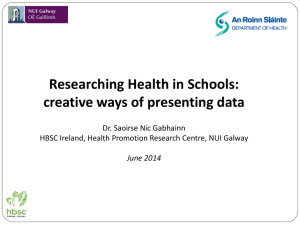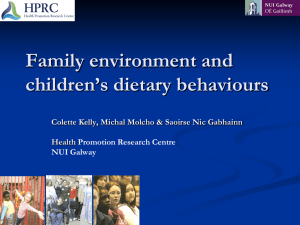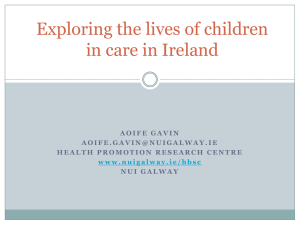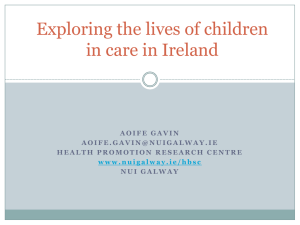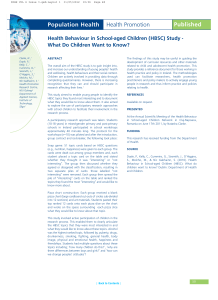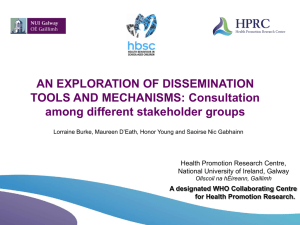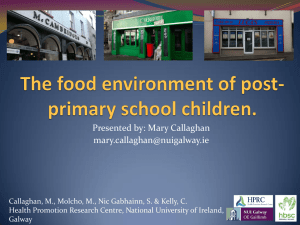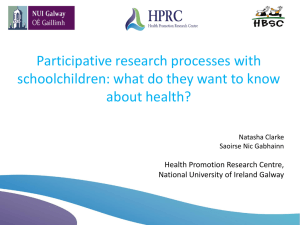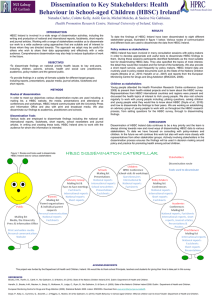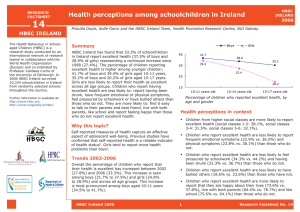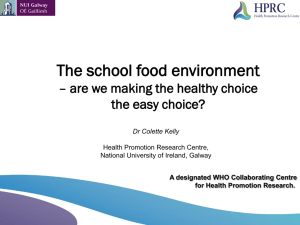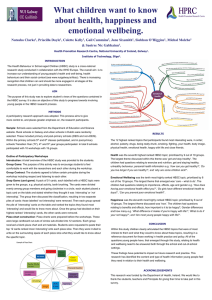Research and Policy Saoirse Nic Gabhainn
advertisement
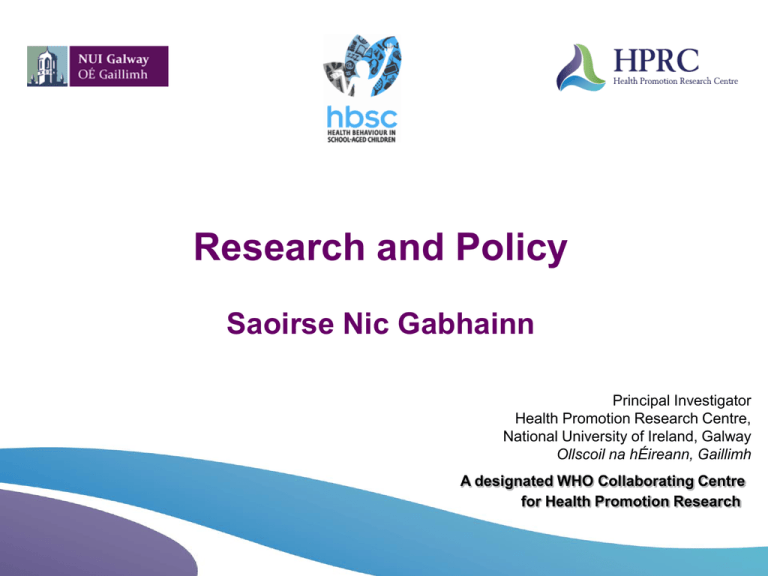
Research and Policy Saoirse Nic Gabhainn Principal Investigator Health Promotion Research Centre, National University of Ireland, Galway Ollscoil na hÉireann, Gaillimh A designated WHO Collaborating Centre for Health Promotion Research Why? • Researchers practice research, not policy-making – We should stick at what we are good at and focus on research skill • Our priviledge – We have incredibly valuable access to knowledge and information – Plus the skills to interpret it • Our responsibilities – To our participants, parents, gatekeepers, funders, students – To the future – To ethics Approaches • Rational (actor) model – Precise, relevant, reliable information will be acted upon • Organisational interest perspective – Control of information – Internal information prioritised • Communication perspective – A language and priorities divide between two communities – Scepticism can develop into respect Greenhalgh & Russell (2009); Hanney, Gonzalez-Block, Buxton & Kogan (2003) Experiences • Rational (actor) model – Academic journal articles, policy briefings, books (hard, slow, not read) • Organisational interest perspective – Commissioned research (limiting and very time consuming to follow-up) • Communication perspective – – – – – Learning how to present information in the way it can be used Using all formats to present information (NIHS, CRD, On-line fora) Working with others who have influence over decisions (stakeholders) Breaking down barriers of language, sector, interpersonal factors Being consistent and pragmatic Examples • Research Factsheets – HRB funded work with policy makers on dissemination mechanisms • HBSC-WHO Europe Forums – Co-authoring with policy-makers on case studies about specific issues • ‘Free’ work – Developing opportunities, ideas and trust; help desk and short reports • Media dissemination – Learning how to write press releases, provide print-ready copy and interview • Working with stakeholder groups – Writing for and with them, presenting at seminars, involving groups in research process (IRC/CPP funded) Disssemination of Irish HBSC • 43 reports (national and international) • • • • • • >100 scientific articles 7 books and book chapters >110 conference presentations 20 short reports >60 factsheets >350 media articles (plus radio/TV) 22 factsheets on health outcomes health behaviours and the social context of health among school children in Ireland, per round Challenges • • • • • • • Changes in personnel Convincing Universities that this is real work (lip service) Realising that you need to write the journal articles first Having to simplify complex ideas Having your findings misrepresented or misinterpreted Having your skills or qualifications misquoted Not being cited or acknowledged at all (very common) Possible Benefits • Very satisfying • Good use of money • Developing new skills • Early career researchers • Greater democratisation of information and knowledge • Better policy, strategy, action plans and practice • Better outcomes for children and society as a whole Learning from the journey • Ethical responsibilities – to children, use of public monies • Valuing policy contacts – skill sets, commitment to doing the ‘right’ thing, balancing demands • Lobbying and advocacy skills – for example from the Combat Poverty Agency • Influence the influencers – media, political parties, stakeholders, lobby groups, community and voluntary organisations Acknowledgements • Thank you to all the children and young people who participate in our work, their parents and teachers • Funding bodies: Department of Health, Department of Children and Youth Affairs, Crisis Pregnancy Programme of the HSE, Irish Research Council, Health Research Board • HBSC Ireland Research Team; see www.nuigalway.ie/hbsc • Child and Adolescent Health programme team in WHO Europe
